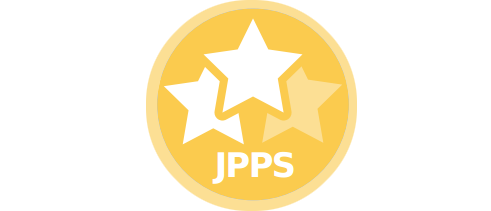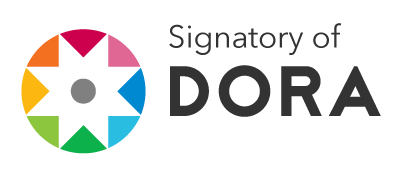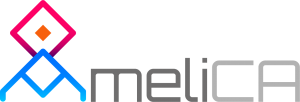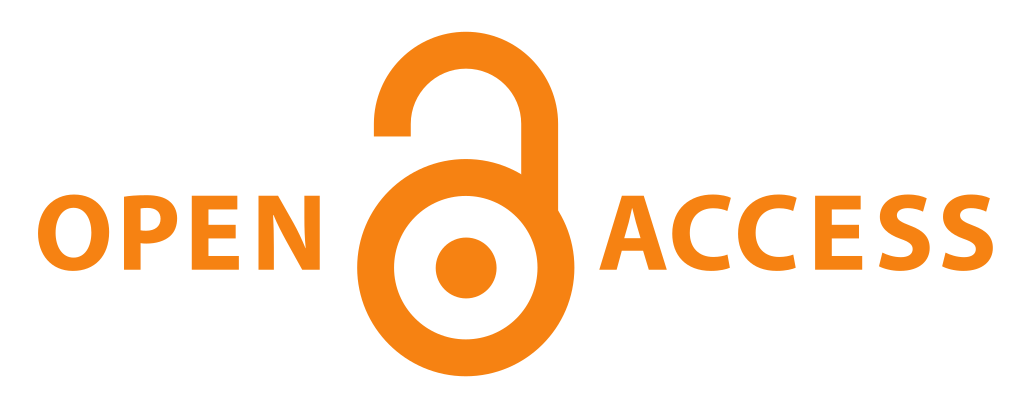The Development of Attitudinal Skills for the Research Work of Students in Teacher Training: Autonomous, Critical and Creative Learning
Keywords:
teacher training, researcher training, skills development, teacher competenciesAbstract
This research has been proposed, from the implementation of a program for the development of research competence in Initial Teacher Training (FID), to account for the perceptions that students have, with respect to the achievement and development of learning autonomous, critical and creative for research work. This study has been developed from the theoretical and methodological foundations of the qualitativeinterpretive research approach and particularly, with the application of the evaluative level case study method. We worked with a sample of 80 students in teacher training at a Honduran university, to whom a semi-structured qualitative interview was applied. For the processing of codes and the categorization of the units of analysis, the specialized program for qualitative data AQUAD 6 was used. Among the most relevant results, it is evident that the students have perceived their own achievement of attitudinal skills to self-regulate their learning process with critical judgment and innovative responsibility during the investigative work. And all this, within the framework of a pedagogical environment full of practical experiences of collaborative work between peers and with the support of teachers; and reinforced with information and resources hosted on the web.
References
Alamri, H., Lowell, V., Watson, W. y Watson, S. (2020). Using personalized learning as an instructional approach to motivate learners in online higher education: Learner self-determination and intrinsic motivation. Journal of Research on Technology in Education, 52(3), 322-352, https://doi.org/10.1080/15391523.2020.1728449
Alsina, Á., Batllori, R., Falgàs, M. y Vidal, I. (2019). Marcas de autorregulación para la construcción del perfil docente durante la formación inicial de maestros. Revista complutense educación, 30(1), 55-74. https://doi.org/10.5209/RCED.55466
Álvarez, F., Rodríguez-Pérez, J., Sanz-Ablanedo, E. y Fernández-Martínez, M. (2009). Aprender enseñando: elaboración de materiales didácticos que facilitan el aprendizaje autónomo. Formación Universitaria, 1(6), 19-28. http://dx.doi.org/10.4067/S0718-50062008000600004. E
Barbot, B. y Said-Metwaly, S. (2020). Is There Really a Creativity Crisis? A Critical Review and Meta-analytic Re-Appraisal. Journal of Creative Behavior. https://doi.org/10.1002/jocb.483
Ehtiyar, R. y Baser, G. (2019). University Education and Creativity: An Assessment From Students’ Perspective. Eurasian Journal of Educational Research, 80(6), 113-132. https://doi.org/10.14689/ejer.2019.80.6
Espinosa-Zárate, Z. (2019). El cultivo de la creatividad para el diálogo intercultural. Revista Española de Pedagogía, 77(272), 29-45. https://doi.org/10.22550/REP77-1-2019-05
Fabres, J. y Tapia, P. (2017). Desarrollo de habilidades de comunicación académica para estudiantes en su primer año de formación inicial docente. Revista Electrónica Diálogos Educativos, 8(33). http://www.dialogoseducativos.cl/revistas/n33/fabres
Flick, U. (2014). La gestión de la calidad en investigación cualitativa. Ediciones Morata, S.L.
Gurak-Ozdemir, S., Acar, S., Puccio, G. y Wright, C. (2019). Why Do Teachers Connect Better With Some Students Than Others? Exploring the Influence of Teachers’ Creative-Thinking Preferences. Gifted and Talented International, 34(1-2), 102-115. https://doi.org/10.1080/15332276.2019.1684221
Hamid, R. y Ismail, M. (2020). University Students' Involvement in Developing Creative Thinking Skills through Teamwork Activities. International Journal of Management Studies, 27(2), 133-159. https://sciendo.com/journal/IJME
Jahnke, I., Haertel, T. y Wildt, J. (2015). Teachers' conceptions of student creatvity in higher education. Innovations in Education and Teaching International, 52, 87-95. https://doi.org/10.1080/14703297.2015.1088396
Jang, H., Reeve, J. y Halusic, M. (2016). A New Autonomy-Supportive Way of Teaching That Increases Conceptual Learning: Teaching in Students' Preferred Ways. Journal of Experimental Education, 84(4), 686-701. https://doi.org/10.1080/00220973.2015.1083522
Jonsdottir, S. (2017). Narratives of creativity: How eight teachers on four school levels integrate creativity into teaching and Learning. Thinking Skills and Creativity, 24, 127-139. https://doi.org/10.1016/j.tsc.2017.02.008
Kirschner, P. A. y Stoyanov, S. (2020). Educating Youth for Nonexistent/Not Yet Existing Professions. Educational Policy, 34(3), 477-517. https://doi.org/10.1177/0895904818802086
Latorre, A. (2008). La Investigación-acción. conocer y cambiar la práctica educativa. Graó, de IRIF, S.L.
Lorencová, H., Jarošová, E., Avgitidou, S. y Dimitriadou, C. (2019). Critical thinking practices in teacher education programmes: a systematic review. Studies in Higher Education, 44(5), 844-859. https://doi.org/10.1080/03075079.2019.1586331
Manzano, B. (2018). Teacher development for autonomy: an exploratory review of language teacher education for learner and teacher autonomy. Journal Innovation in Language Learning and Teaching, 12(4). https://doi.org/10.1080/17501229.2016.1235171
Mukhopadhyay, K. y Kuan, S. (2019). Where freshmen aspirations meet reality: factors influencing the learning outcomes of a living-and-learning program in an Asian university. Higher Education Research & Development, 38(5), 1015-1030. https://doi.org/10.1080/07294360.2019.1598337
Ng, C. (2018). I learn for a job promotion: the role of outcome-focused career goals in motivating distance learners to learn. Distance Education, 39(3), 390-410. htpps://doi.org/10.1080/01587919.2018.1476839
Penkauskienė, D., Railienė, A. y Cruz, G. (2019). How is critical thinking valued by the labour market? Employer perspectives from different European countries. Studies in Higher Education, 44(5), 804-815. https://doi.org/10.1080/03075079.2019.1586323
Rahman, H., Guo, X. y Popescu, M. (2020). A survey of beliefs and vocabulary Learning strategies adopted by EFL learners at shaikh zayed University. Cogent Education, 7(1). https:// doi.org/10.1080/2331186X.2020.1829803
Reyes, M. (2017). Desarrollo de la competencia de aprendizaje autónomo en estudiantes de Pedagogía en un modelo educativo basado en competencias. Revista de Estudios y Experiencias en Educación, 16(32), 67-82. https://doi.org/10.21703/rexe.20173267824
Sasson, I., Yehuda, I. y Malkinson, N. (2018). Fostering the skills of critical thinking and question-posing in a project-based learning environment. Thinking Skills and Creativity, 29, 203-212. https://doi.org/10.1016/j.tsc.2018.08.001
Sönmez, E., Kabataş Memiş, E. y Yerlikaya, Z. (2019). The effect of practices based on argumentation-based inquiry approach on teacher candidates critical thinking. Educational Studies, 47(1), 59-83. https://doi.org/10.1080/03055698.2019.1654364
Tójar, J. C. (2006). Investigación Cualitativa Comprender y Actuar. Editorial La Muralla, S.A.
Van der Beek, S., Bellhauser, H., Karlen, Y. y Hertel, S. (2020). New ways in fostering self-regulated learning at university: ¿How effective are web-based courses when compared to regular attendance-based courses? Zeitschrift fur Padagogische Psychologie, 34(2), 117-129. https://doi.org/10.1024/1010-0652/a000254
Velasco, J. (2018). Aprender en el aprender a lo largo de la vida. Revista Iberoamericana de Educación/Revista Ibero-americana de Educação, 76(1), 125-144. file:///C:/Users/test1/Downloads/2648-Texto%20del%20art%C3%ADculo-1433-2-10-20180413.pdf
Wernersson, I. y Orwehag, M. H. (2016). Scholarly skills as everday practice- implications for education. Higher education skills and work-based Learning, 6(3), 224-236. http://doi.org/10.1108/HESWBL-04-2015-0021
Williams, R., Runco, M. y Berlow, E. (2016). Mapping the Themes, Impact, and Cohesion of Creativity Research over the Last 25 Years. Creativity Research Journal, 28(4), 385-394. https://doi.org/10.1080/10400419.2016.1230358
Zhuang, K., Yang, W., Li, Y., Zhang, J., Chen, Q., Meng, J. y Qiu, J. (2020). Connectome-based evidence for creative thinking as an emergent property of ordinary cognitive operations. NeuroImage, 227. https://doi.org/10.1016/j.neuroimage.2020.117632
Downloads
Published
How to Cite
Issue
Section
License
Copyright (c) 2022 Paradigma: Revista de Investigación Educativa

This work is licensed under a Creative Commons Attribution-NonCommercial-NoDerivatives 4.0 International License.








